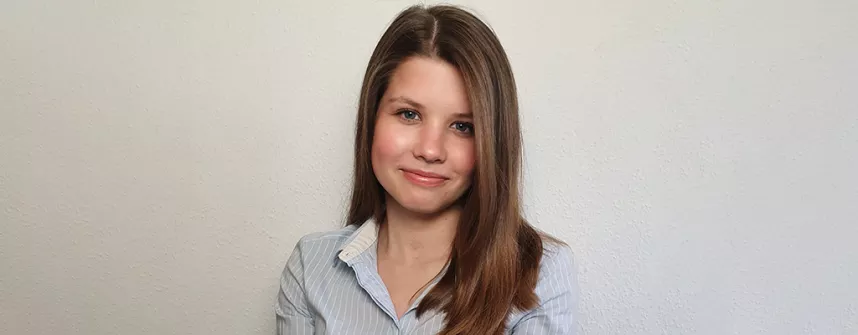Best Bachelor Thesis: OLB Science Award for Isabella Langen
June 22, 2021
The way we learn, the way we acquire knowledge, is in part culturally shaped. This is particularly noticeable at a university like Jacobs University Bremen, with students from over 110 nations. Psychology student Isabella Langen made the difference in learning behavior between Western- and Eastern-oriented students the subject of her bachelor's thesis. And she was awarded the OLB Science Prize 2020 for best thesis.
The Western, "Socratic" style of thinking and working relies on active oral participation, on questioning existing positions, and on transferring knowledge to other areas. In the Confucian-influenced countries of Asia, on the other hand, it is not questioning that is important, but listening, absorbing and reproducing knowledge. In this regard, it is not surprising that students of Asian origin at Western universities often find certain tasks particularly challenging.
"I just noticed that in group works," Isabella Langen said. In her bachelor's thesis, she surveyed 46 fellow students and found that students with a Confucian approach to learning experience a significantly higher level of stress compared to their Western peers. Their coping strategy is also different, often reducing their engagement in certain learning tasks.
"Clever, fast-paced, smart and stringent-compact," praised the OLB Science Prize jury the line of reasoning from her thesis of 2020. "West versus East – Higher Academic Stress and Coping in Students with a Confucian Learning Approach," is its full title. The work raises awareness for different learning expectations, which is important not only for teachers at a university, but also for international teams in companies, for example. The award comes with prize money of 5,000 euros.
The Bremen native is particularly interested in industrial and organizational psychology. She has been familiar with Jacobs University for a long time. When she was a child, her parents hosted students from the university as part of the host family program. "Through that, we met great people from all over the world," Isabella recalled. She herself went to Alaska for a year as a high school student. After that, it was clear to her that she wanted to study at an English language university.
She decided for Jacobs University especially because of its internationality. "Living together on campus is something very special," she said. "No matter what is happening in the world, you have at least one person at the table who is affected by it, who can say more about it. You learn a lot because of that." And then there's the close mentoring from professors and instructors, such as organizational psychologist Professor Christian Stamov Roßnagel, who supervised her work.
Isabella has decided to also do her master's degree in psychology at Jacobs University. The topic of interculturality continues to interest her. She is considering doing further research on it in a doctoral program after graduation. "How to communicate between different cultures and resolve potential conflicts is something I find incredibly exciting and important," Isabella said.
